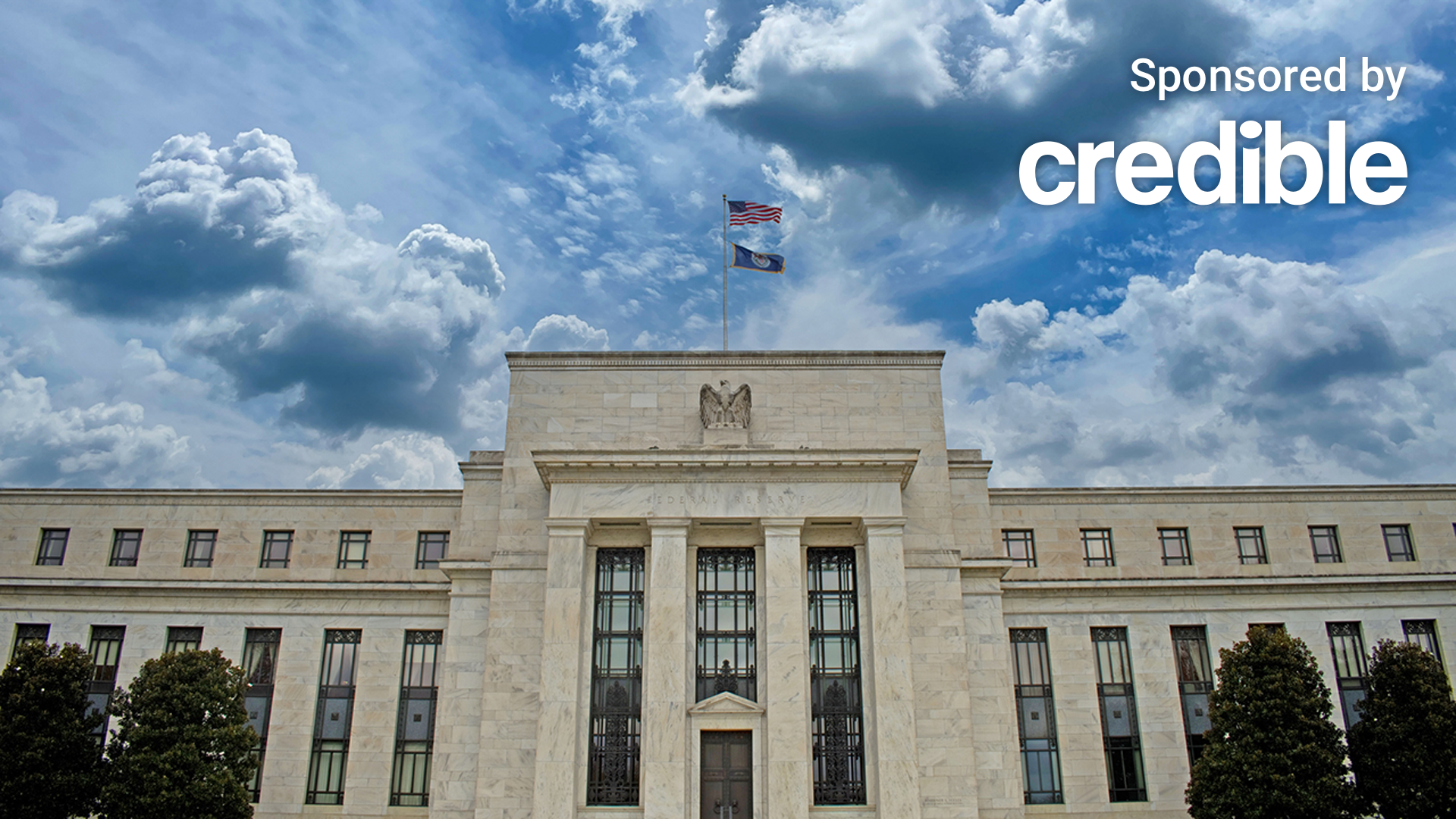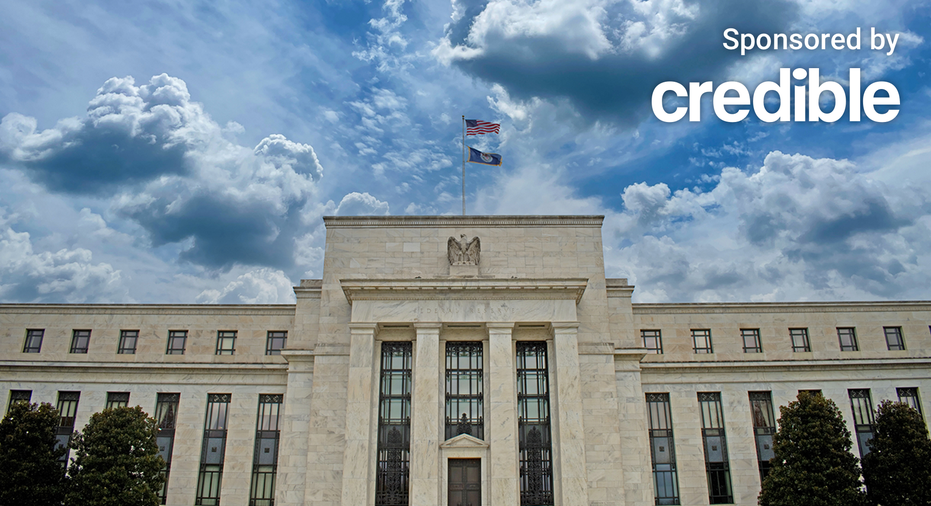The Fed interest rate cut will mean better borrowing rates for borrowers. (iStock)
The Federal Reserve cut the federal funds rate by half a percentage point Wednesday, a move that was largely anticipated by economists as inflation continues to inch sustainably toward a 2% target rate.
The central bank announced it would lower the federal funds rate by 50 basis points to a range of 4.75% to 5%, as it turns its attention to rising unemployment. The August jobs report showed a net gain of 142,000 jobs and unemployment at 4.2%. The central bank predicted the unemployment rate will increase to 4.4% and stay there. Federal Reserve Chair Jerome Powell said at a press conference on Wednesday that the U.S. labor market is solid, and the rate cut is intended to maintain its strength.
Inflation rose 2.5% in August, the smallest 12-month increase since February 2021. Core inflation, which excludes more volatile food and energy prices, rose 3.2% and increased 0.3% monthly in August.
“The FOMC projections highlighted that inflation is returning to target more quickly than the Committee had expected in June and that the unemployment rate has moved higher and is likely to stay higher than expected,” said Mike Fratantoni, the Mortgage Bankers Association Senior Vice President and Chief Economist. “While not likely to be in a recession, the U.S. economy is likely in for a period of slower economic growth.”
The Fed is expected to continue cutting rates this year and indicated that if the economy evolves as expected, the federal funds rate could be dialed back to 4.4% at the end of this year and 3.4% by the end of 2025.
“We are now at the beginning of the Fed lowering rates,” Voxtur CEO Ryan Marshall said. “We know that the Fed will continue to cut rates throughout the year to keep the economy as strong as possible, but how far are they willing to go? We think they will keep cutting until rates are hovering at 5% unless there is a strong economic event, like a major uptick in unemployment. In which case, the Fed will get even more aggressive in cutting rates.”
If you’re worried about the state of the economy, you could consider paying down high-interest debt with a personal loan at a lower interest rate. Visit Credible to speak with a personal loan expert and get your questions answered.
BEST PERSONAL LOANS OF AUGUST 2024
Mortgage market already priced in cuts
For mortgages, that rate cut isn’t likely to create much change since this anticipated cut has already been baked into borrowing rates, which have dropped to close to 6% in recent weeks, according to Freddie Mac. However, with the Fed’s indication that more rate cuts could follow, mortgage rates could continue to trend downward.
The lower mortgage rate environment has spurred increased refinances and some additional purchase activity in recent weeks. Roughly four million homes have a refinance opportunity, with rates falling closer to 6% and there are more in the pipeline as the Fed starts the easing cycle, according to CoreLogic Chief Economist Selma Hepp.
“It’s important to note that lower rates have been a hot topic for a while, and potential homebuyers have been on the sidelines in anticipation of lower rates and improved affordability,” Hepp said. “With rates coming down over the last four weeks, CoreLogic data revealed that pending home sales have finally started to show consistent improvement over last year’s activity.”
But high borrowing rates aren’t the only challenge buyers face; the housing market is also plagued by low inventory, which has helped keep prices elevated even as demand for housing is down.
“The Fed is looking to stimulate housing while the economy is still somewhat in a good spot in terms of inflation and consumer confidence,” Percy.AI Founder and CEO Charles Williams said. “They will need to lower rates more to create a mini-refinance boom, and builders are now constructing more starter homes. So, with additional rate cuts coming later this year, 2025 will see a housing market rebound in both existing and new home sales.”
If you want to become a homeowner, you could still find the best mortgage rates by shopping around. Visit Credible to compare your options from multiple lenders at once.
GROW YOUR MONEY FASTER: 5 ALTERNATIVES TO A SAVINGS ACCOUNT
Consumer wallets catch a break
The rate reduction brings much-needed relief to consumers who have increasingly relied on credit products. According to a recent TransUnion report, bank card balances increased 4.4% on an annual basis in the second quarter of 2024.
The reduction in interest rates would give borrowers options and could also spur banks to extend credit lending to a larger segment of the consumer population, according to Michele Raneri, TransUnion vice president and head of U.S. research and consulting.
“Today’s reduction in interest rates could ultimately allow for consumers to see lower monthly payments,” Raneri said. “It also may allow for many consumers to consider refinancing higher interest debt into a lower interest credit product such as a personal loan or home equity loan.”
If you are struggling to pay off debt, you could consider using a personal loan to consolidate your payments at a lower interest rate, saving you money each month. You can visit Credible to find your personalized interest rate without affecting your credit score.
SHOULD YOU BUY A HOUSE IN 2024? HERE’S WHAT YOU NEED TO KNOW
Have a finance-related question, but don’t know who to ask? Email The Credible Money Expert at [email protected] and your question might be answered by Credible in our Money Expert column.

 Blog Post1 week ago
Blog Post1 week ago
 Economics1 week ago
Economics1 week ago
 Finance1 week ago
Finance1 week ago
 Economics1 week ago
Economics1 week ago
 Economics1 week ago
Economics1 week ago
 Personal Finance1 week ago
Personal Finance1 week ago
 Accounting1 week ago
Accounting1 week ago
 Economics1 week ago
Economics1 week ago










